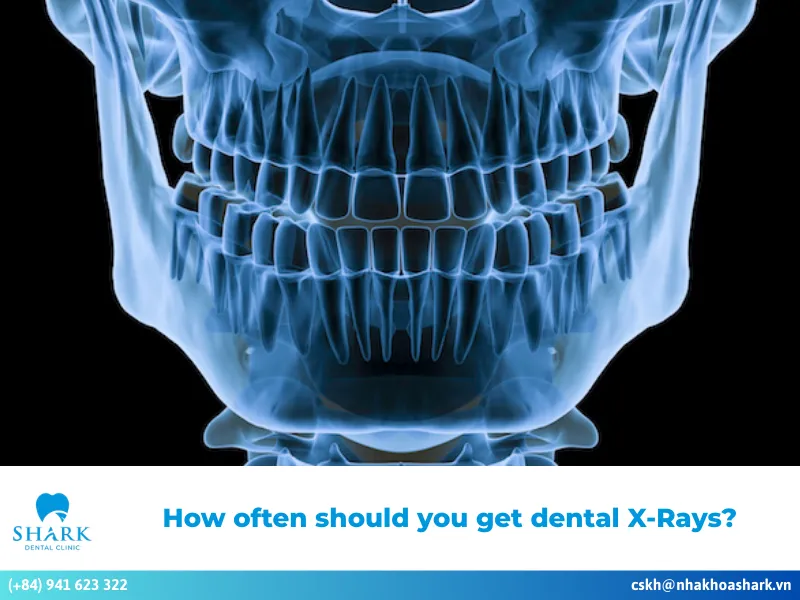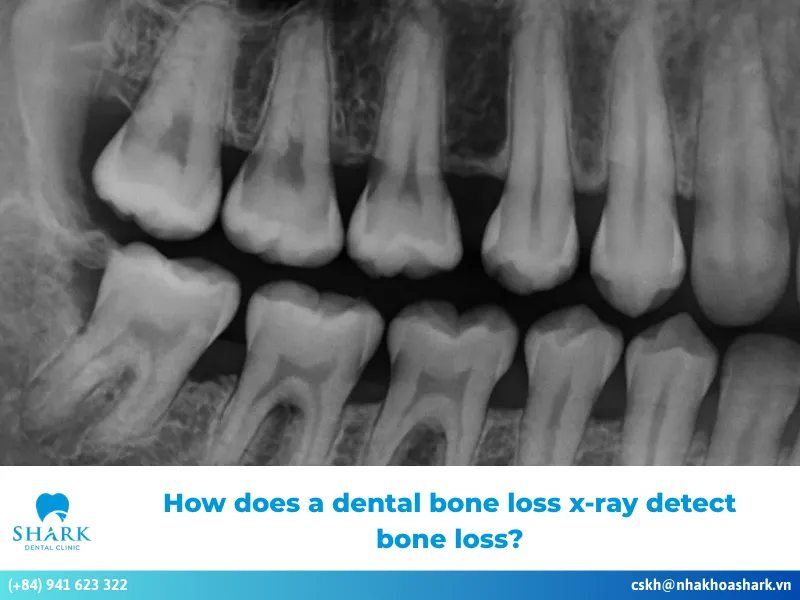Your diet significantly influences how long your teeth stay bright after a whitening treatment. So, how long after teeth whitening can i eat normally, and what foods should you eat or avoid? If you want to maintain a bright, healthy smile and follow a safe post-whitening diet, check out the detailed guide below.
How long after teeth whitening can I eat normally?
You can eat and drink normally about 5 to 7 days after teeth whitening.
Teeth whitening is a relatively straightforward procedure that does not require overly strict dietary restrictions. However, during the first few days, you should pay special attention to your eating habits to help stabilize the tooth color, keeping your smile naturally bright and confident.
- Within the first 24 hours: During this period, the enamel is still quite sensitive and can be easily re-stained when exposed to colored foods or drinks. Some individuals may also experience mild tooth pain or sensitivity when consuming foods or beverages that are too hot or too cold.
- During the next 48 hours: The enamel continues to undergo remineralization. Dark-colored pigments can easily adhere to the tooth surface, causing discoloration or dullness. Therefore, it’s advisable to continue prioritizing light-colored, low-sugar, and low-acid foods during this time.
- After 3–5 days: The enamel gradually becomes more stable and less sensitive, allowing you to enjoy your meals more comfortably. It’s best to eat a variety of nutrient-rich foods while still limiting dark-colored items, such as curry or turmeric, to help maintain the whitening results.
- After 1 week: By this point, your teeth should have stabilized, and the whitening effect will be clearly visible. You can return to your regular eating habits, but continue to avoid foods that can lead to tooth decay or staining to ensure long-lasting brightness.

>>> See more: Teeth whitening cost in Vietnam
How long does teeth whitening last?
The results of teeth whitening can last anywhere from 4 months to 3 years, depending on the method used. Teeth whitening offers only temporary cosmetic improvements, and the duration of its effects relies on your oral care routine, the condition of your enamel, and the specific whitening technique used.
- Natural teeth whitening methods: Whitening your teeth naturally typically lasts about 4 to 5 months. These methods often use ingredients such as salt, lemon, or baking soda for teeth whitening and plaque, helping your teeth look cleaner and brighter.
- Using whitening trays: Whitening trays usually maintain results for about 1 to 2 years. These trays contain a professional whitening gel with a suitable concentration that helps brighten your teeth more effectively than home remedies.
- Professional teeth whitening at a dental clinic: Laser teeth whitening performed at a dental clinic can maintain results for up to 2 to 3 years. The laser light activates the whitening gel, allowing it to deeply penetrate the enamel and break down stubborn stains and yellow discoloration. As a result, you’ll achieve a long-lasting, naturally radiant smile.
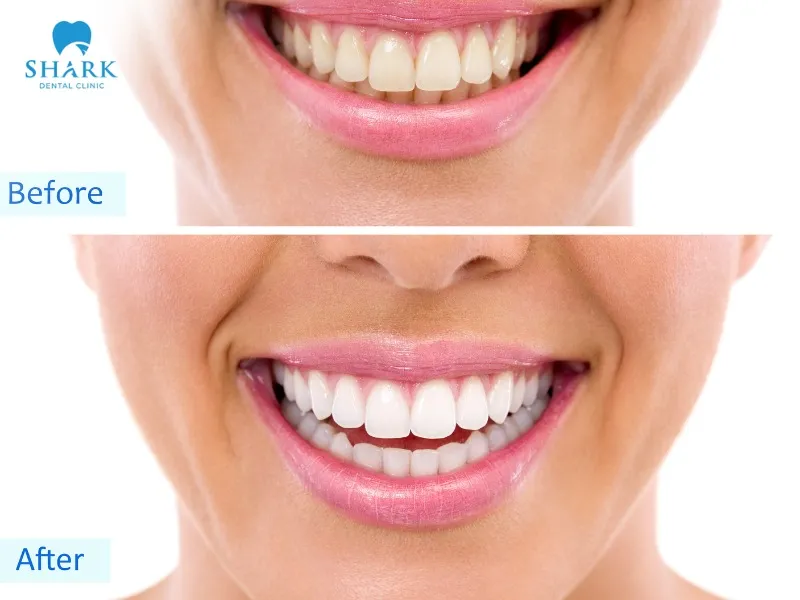
Foods and drinks to avoid after teeth whitening
After undergoing professional teeth whitening at a dental clinic, it’s essential to avoid certain foods and drinks to help maintain long-lasting results. Here is a list of items to steer clear of:
- Dark-colored foods and drinks: Avoid items such as turmeric, curry, coffee, and tea. These foods contain strong pigments that can easily adhere to the enamel, leading to discoloration and making your teeth appear dull.
- Beverages that are too hot or too cold: Be cautious with drinks that are too hot or too cold, such as iced water, hot tea, or hot coffee. Sudden temperature changes can cause tooth sensitivity or discomfort.
- Acidic foods: Fruits and foods high in acid—like lemons, oranges, and pickled vegetables—can erode enamel and increase sensitivity in your teeth.
- Hard or sticky foods: Chewy candies, nuts, and other hard foods can put pressure on sensitive teeth and make it difficult to clean your mouth effectively after eating.
- Dark-colored fruits and vegetables: Items such as blueberries and beets contain anthocyanins, pigments that can stain enamel. Consuming large amounts of these can lead to visible discoloration, so limit their intake after whitening.
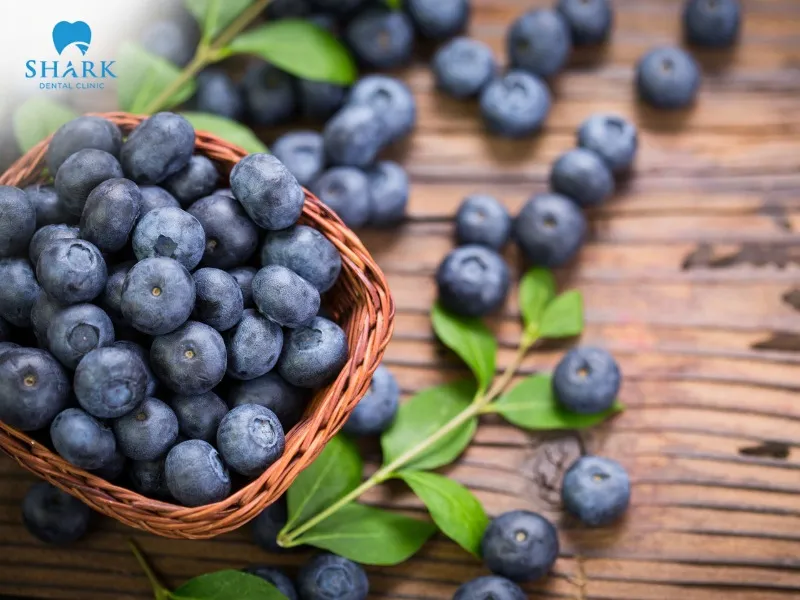
- Spicy or sour foods: Foods like pickles, spicy noodles, and chili sauces can wear down enamel over time. Weakened enamel increases the risk of damage and discoloration, especially right after whitening.
- Greasy and oily foods: Deep-fried foods and spicy dishes can irritate the gums and encourage plaque buildup on tooth surfaces.
- Sugary foods and drinks: Candies, chocolate, and sugarcane juice contain high levels of sugar, increasing your risk of tooth decay, which you’ll want to avoid after whitening.
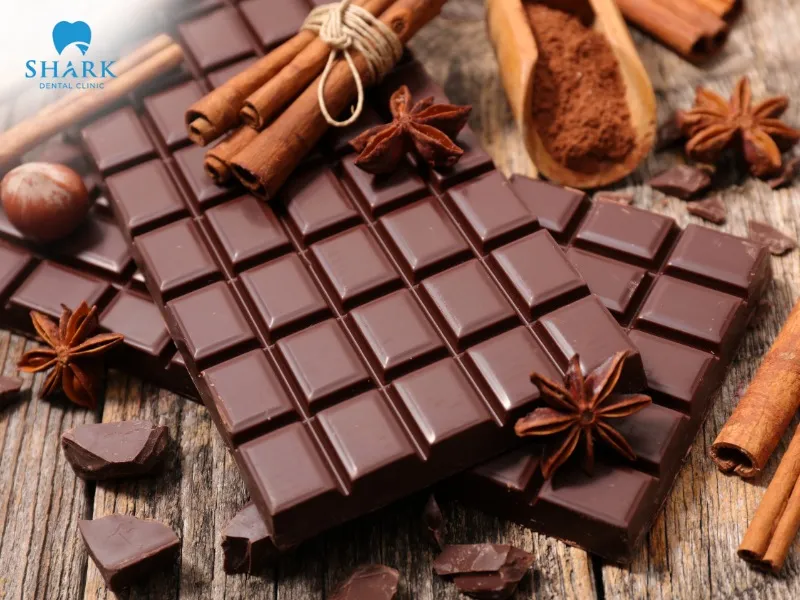
Safe foods to eat after teeth whitening
A healthy diet is vital for the success of your teeth whitening results. If you are wondering what can I eat after teeth whitening, here are some dentist-recommended food options you can include in your meals to ensure your smile stays bright:
- Light-colored foods: Foods such as plain porridge, rice, noodles, or pho are ideal because they do not strongly adhere to enamel and will not interfere with whitening results.
- White meats: Opt for lean pork, chicken, fish, or shrimp. These protein-rich foods support oral health without causing discoloration.
- Fresh fruits and vegetables: Fresh produce like pumpkin, carrots, cauliflower, and fruits such as green apples, bananas, and pears offer essential vitamins and minerals that help strengthen teeth and protect enamel.
- Seafood: Seafood is rich in protein and minerals, making it an excellent choice post-whitening. Options like shrimp, squid, white fish, or blood cockles are beneficial.
- Healthy drinks: Coconut water and plain water are great choices as they do not contain staining pigments and help rinse away food debris and bacteria from the mouth.
- Soft, mashed foods: Foods like mashed potatoes, thin porridge, soups, and broths are gentle on the gums and enamel, providing balanced nutrition without putting pressure on sensitive teeth after whitening.
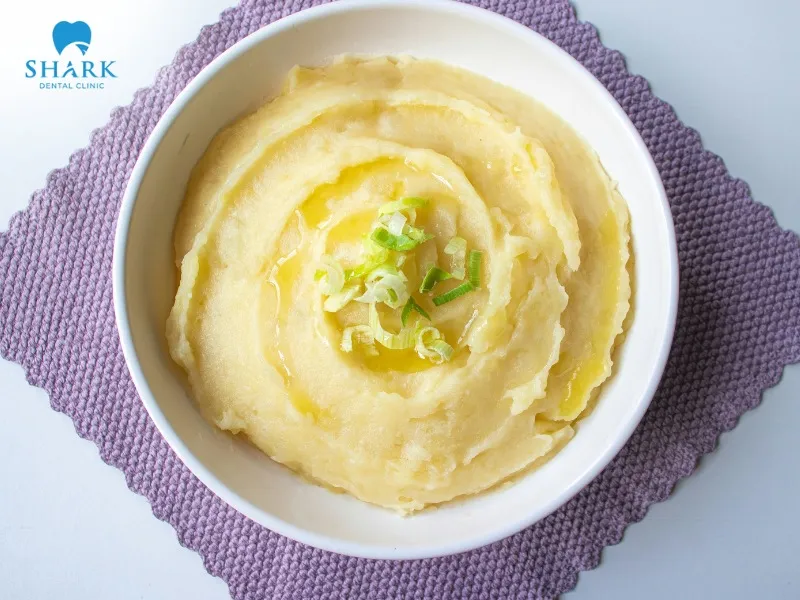
Tips for long-lasting teeth whitening results
The results of teeth whitening can vary from person to person. If you want to maintain a naturally bright and radiant smile for as long as possible, follow these practical tips:
- Stick to white or colorless foods: After whitening, opt for light-colored foods like unsweetened milk, rice, or porridge. Avoid dark-colored foods such as curry, soy sauce, and coffee, as they can quickly stain your teeth.
- Be cautious when using lipstick: For women who wear lipstick after whitening, be careful not to let it touch your teeth, as pigments can stick to the enamel.
- Use a straw when drinking: When consuming colored beverages like fruit juice or soda, use a straw to minimize direct contact with your teeth. This simple habit can help preserve your whitening results.
- Maintain a consistent oral care routine: Brush your teeth 2 to 3 times a day using a soft-bristled toothbrush and gentle toothpaste. Proper brushing removes plaque, prevents gum disease, and helps keep your smile bright.
- Rinse daily with saline or mouthwash: Regularly rinsing with saline solution or an antiseptic mouthwash removes leftover food particles and bacteria, helping to maintain a clean and fresh mouth.
- Add vitamin D–rich foods: Foods such as salmon, mackerel, and egg yolks improve calcium absorption, strengthen enamel, and reduce the risk of discoloration after whitening.
- Schedule regular dental checkups: Visit your dentist every 3 to 6 months to assess your whitening results and address any early signs of staining or sensitivity.

Is it safe to consume dairy products after teeth whitening?
After professional teeth whitening, it is generally safe—and even beneficial—to include dairy products in your diet, especially unsweetened or low-sugar options. These foods support oral health and help protect enamel if consumed properly.
- Neutral PH level: Dairy products such as pasteurized milk, plain yogurt, and white cheese have a neutral pH and contain no strong pigments, making them unlikely to stain your teeth.
- Rich in calcium and minerals: Milk is an excellent source of calcium and other minerals that strengthen tooth enamel, making your teeth more resistant to damage and discoloration.
- Reduces sensitivity: The proteins in milk, particularly casein, form a protective film over tooth surfaces, helping to ease sensitivity and discomfort after whitening.
- Non-acidic to the mouth: Unlike many acidic foods, milk does not erode enamel or irritate gums, helping maintain a balanced environment in your mouth.
However, you should avoid flavored or colored milk varieties, such as chocolate or orange milk, as they often contain high sugar levels and dark pigments that can cause staining or increase the risk of cavities.
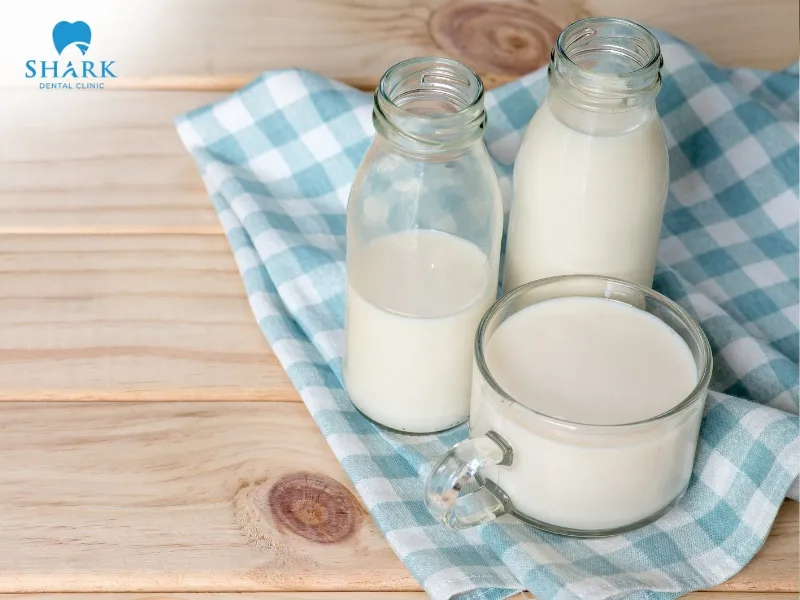
The question “how long after teeth whitening can i eat normally?” has been clearly addressed in this article. With these helpful and practical tips, you now know which foods to enjoy and avoid, as well as how to maintain your bright, healthy smile for longer. Stay confident with your radiant smile!
>>> See more: How to treat burned gums from teeth whitening








